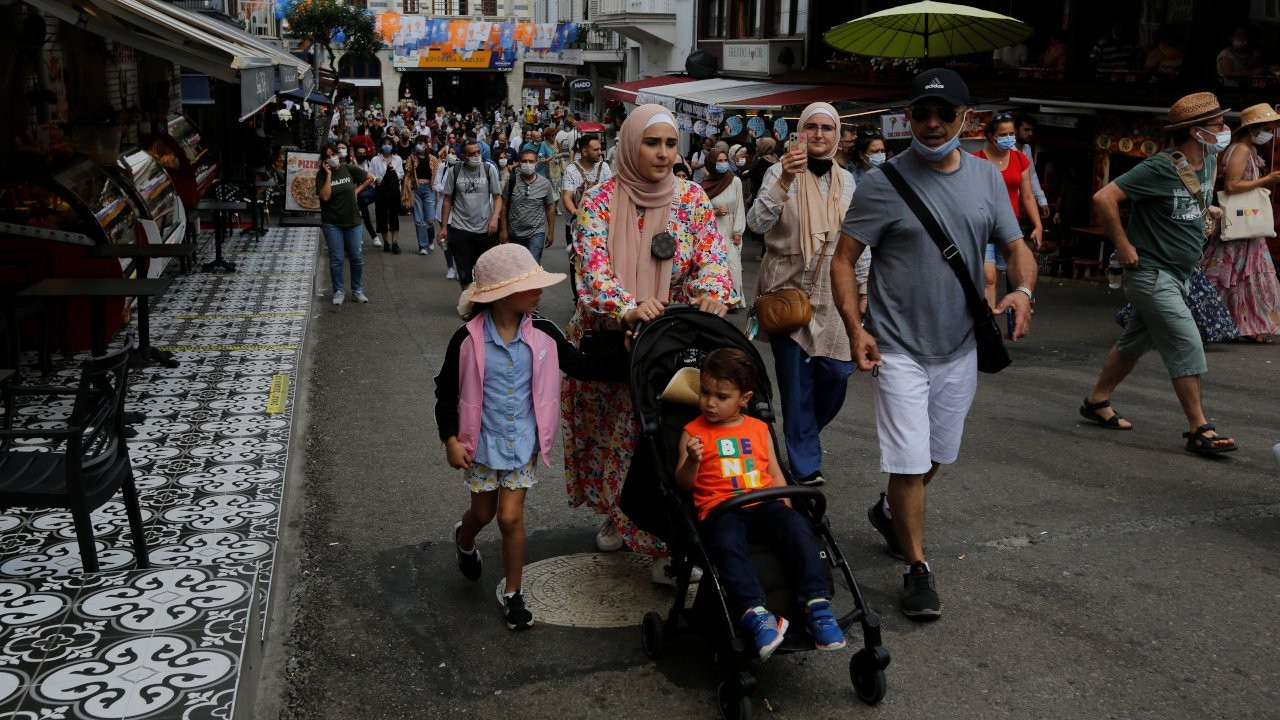Turkey's youth worried about their social, economic well-being
Turkey's youth is extremely concerned about their household finances and overall social and economic well-being, according to a report published by the OECD.
K. Murat Yıldız / Duvar English
The Organization for Economic Cooperation and Development (OECD), in its recently released report titled “Young people’s concerns during COVID-19: Results from risks that matter 2020,” said that young people are among the most affected by the economic crisis as a result of the COVID-19 pandemic.
OECD’s Risks That Matter 2020 survey revealed that “two in three 18-to-29-year-olds are worried about their household’s finances and overall social and economic well-being, and an equal share thinks the government should be doing more to support them. However, only one in four young people is willing to pay additional taxes to finance better provision of employment or income support.”
Young people in all OECD countries have been impacted by the Pandemic, but the severity of the effects varies greatly. Only three out of every ten young people in Belgium and the Netherlands reported job disruptions, whereas more than six out of ten young people in Estonia, Mexico, Turkey, Israel, Greece, and Chile reported job disruptions.
Turkey in the top three in terms of job loss
COVID-19-related job disruptions have had a significant impact on young people's households. The research revealed that 3 out of 4 young people in Turkey are concerned about the economy while 65 percent of youth said they had a job loss at their household during the pandemic. Turkey was in the top three among the 25 OECD countries in terms of this ratio, along with Estonia and Mexico.
Young people and their families are having difficulty paying their bills as a result of job-related disruptions. More than one-third of young people (36 percent) say their family has faced financial difficulties since the outbreak began.
In an earlier report released in April 2021, the OECD reported that the share of respondents who had trouble paying bills during the pandemic was 67.7 percent on average across countries among those who reported household job loss during the pandemic. In nine countries: Canada, Chile, Greece, Italy, Mexico, Norway, Slovenia, Turkey, and the United States, over 70 percent of respondents whose households lost a job during the pandemic had at least one financial difficulty. “These economic disruptions likely compound underlying levels of structural poverty in countries like Mexico and Turkey, contributing to very high levels of financial difficulty,” the report noted.
More debt to cover daily expenses
According to the same survey, more than one out of every four people in Turkey had to take on additional debt or use credit cards to pay for everyday expenses and 80 percent of those were concerned about their household not being able to pay their expenses and make ends meet in the next year or two. Additionally, 7 out of 10 said they are concerned or very concerned about their ability to make ends meet in the short term. The recent study revealed that over 70 percent of youth aged 18 to 29 share the same concern with the overall population in Turkey.
Financial difficulties among young people's households were reported least frequently in Austria, France, Germany, and the Netherlands with less than 20 percent, and most frequently in Chile, Mexico, Slovenia, and Turkey with more than 50 percent.
30 percent of Turkish youth suffered from mental health problems
Moreover, In Turkey, 30 percent of young people said they suffered mental health problems as a result of the pandemic. The report also noted that during the pandemic in Turkey and the OECD, the mental health of young women deteriorated significantly more than that of men.
Chile, Mexico, Slovenia, and Turkey are the countries with the most economic difficulties for young people according to the study as young people in Austria, France, Germany, and the Netherlands say they have the least financial problems at home, according to the survey, with less than 20 percent.
When it comes to designing or reforming public benefits and services, four out of ten young people believe the government does not take their opinions into account, as governments do not consider young people's opinions when planning public services or support, according to 49 percent of all age groups across the OECD.
The OECD research also revealed that young people expect their governments to do more during the pandemic. On average, one out of every two young people said that "the government could have done more during the pandemic," while 78 percent of young people in Turkey believe that the government should take more effective measures. Turks were the sixth most unhappy nation with their governments’ COVID-19 response following Chile, Mexico, Portugal, Spain and Greece.

 Turkey’s budget balance posts 25 billion liras deficit in JuneEconomy
Turkey’s budget balance posts 25 billion liras deficit in JuneEconomy 'Over 47,000 shopkeepers went bankrupt in first half of 2021 in Turkey'Economy
'Over 47,000 shopkeepers went bankrupt in first half of 2021 in Turkey'Economy Turkey tops Europe in housing price increasesEconomy
Turkey tops Europe in housing price increasesEconomy Lured by cheap lira, curb-free travel, Arab tourists turn to TurkeyEconomy
Lured by cheap lira, curb-free travel, Arab tourists turn to TurkeyEconomy